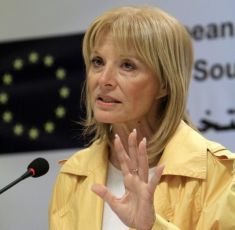Foreign observers attest to “fairness, credibility” of south Sudan referendum
January 17, 2011 (KHARTOUM) – Foreign observers who assessed south Sudan referendum on independence on Monday ruled that the vote had been largely successful, peaceful and credible.

Nearly four million southerners registered to vote in the plebiscite which is widely expected to lead to the creation of their own state. The vote is the centerpiece of the Comprehensive Peace Agreement which in 2005 ended almost half a century of intermittent civil war between north and south Sudan.
A turnout of 60% is required to validate the results of the referendum while the simple majority, 50% plus 1, will determine the outcome. Results trickling from polling stations continue to solidify the foregone conclusion that the vote will result in massive support for south Sudan secession.
Preliminary reports and statements released on Monday by the EU observation mission, the US-based Carter Center, the AU observation mission, the Arab League and East African observers all concurred that the vote was largely peaceful and credible.
A news conference held in Khartoum on Monday saw the head of the EU Mission, Veronique de Keyser, saying that the terms her mission use to describe the referendum are “peaceful and credible.”
De Keyser further suggested that the turnout, which she described as “overwhelming,” is expected to exceed the threshold required to validate the results of the outcome.
The EU chief observer said that approximately 80 percent of eligible voters had registered. She further noted that the referendum campaign in the south was conducted peacefully despite “isolated cases of intimidation” by government security officials.
De Keyser, whose team consisted of 110 observers who visited 800 polling stations in north and south Sudan, said that the mission would withhold final verdict on whether the process met international or not until after the vote counting was over.
The AU observation mission, whose 110 members covered 16 states, said in a preliminary report that the overall conduct of the referendum was “free, fair and credible.”
The mission lauded the “level of preparedness, conduct, and logistical arrangements” put in place by the Southern Sudan Referendum Commission (SSRC), which oversees the process. The mission further observed that while the turnout in south Sudan was “massive,” the turnout in the north was “notably low.”
The AU also noted with concern the incidents of violence reported at borderlands between north and south Sudan, in reference to clashes between the Arab nomadic tribe of Al-Messiryah and Dinka Ngok in the contested central area of Abyei.
Abyei area was supposed to hold a simultaneous referendum on whether it wants to join the north or the south if it opted for secession. However, disagreements between north and south Sudan over the eligibility of voters in the oil-rich area have shrouded the referendum in uncertainty.
The Carter Center, which is the foundation of former US President Jimmy Carter, indicated that the overall process had been “successful and broadly consistent with international standards.”
The center deployed more than 100 observers to assess the process inside Sudan and in OCV locations. The center’s preliminary report said that early results on vote counting indicate that the plebiscite would certainly result in south Sudan secession, reminding the Sudanese government of its commitment to accept the result.
However, the Carter Center highlighted a number of glitches, such as the presence of security officers at polling stations and the absence of civic education, saying they deserve to be noted for future reference.
Observers of the Arab League team said the vote was “characterized by a high degree of transparency and integrity” notwithstanding some anomalies, including “underage voting and propaganda inside polling stations.”
Another satisfaction came from the Intergovernmental Authority on Development (IGAD) in eastern Africa whose observation team concluded that the “counting was done in a free and transparent manner.”
Foreign observers who monitored last year’s general-elections in Sudan reported widespread fraud and intimidation of voters, with Carter Center and the EU saying that the elections had failed to meet international standards.
(ST)
